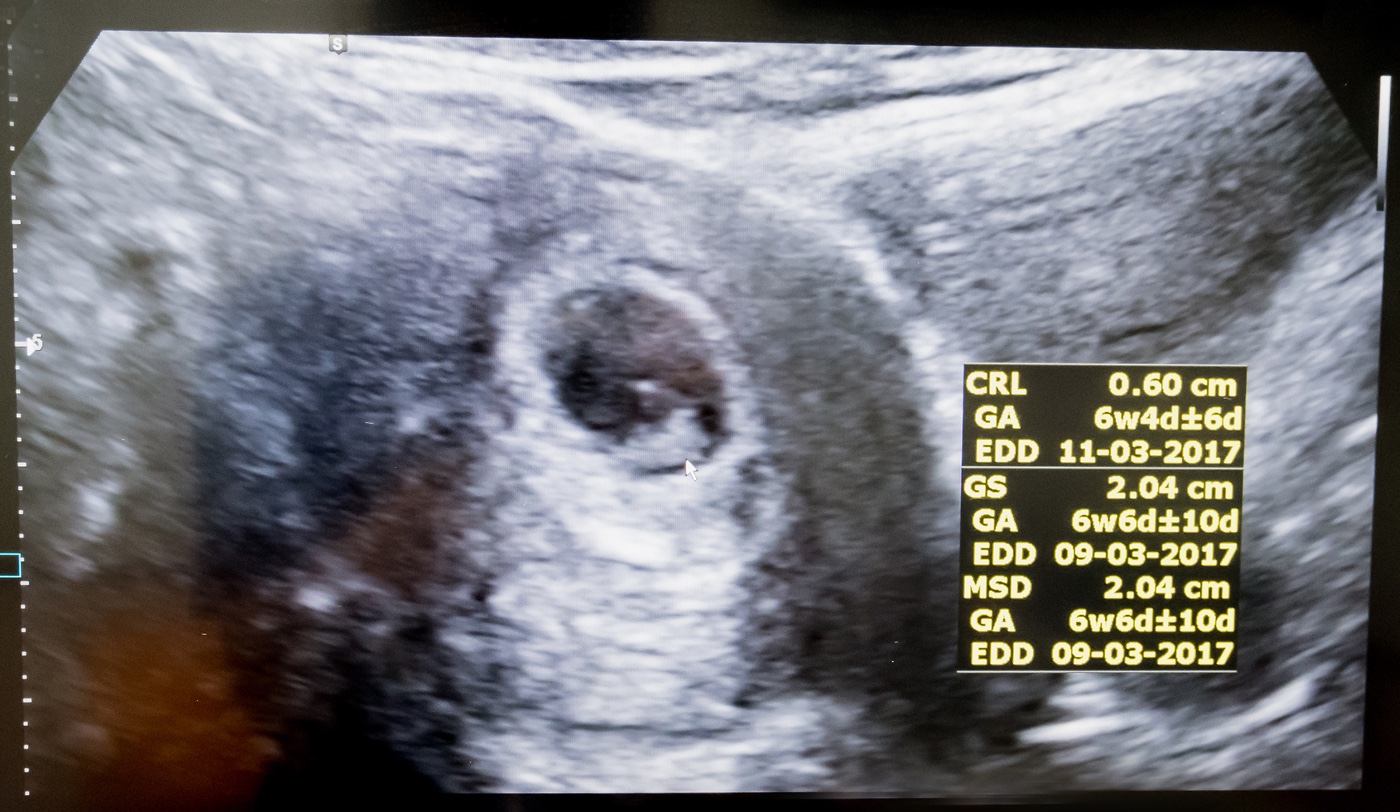

The chambers of your baby’s heart will have developed enough to be seen more clearly on an ultrasound by weeks 17 to 20 of pregnancy. The ultrasound will also confirm your estimated due date, and how many babies you're carrying. If you have a first trimester ultrasound (around or after week 6 of pregnancy), your practitioner or a trained sonographer will check on this embryonic cardiac activity. Subscribe to our blog today.By week 5 of pregnancy, the cluster of cells that will become your baby's heart has begun to develop and pulse. While it can be scary to think about your baby having a heart rhythm issue, the vast majority of fetal arrhythmias do not indicate serious long-term concerns. Chances are, if we listened more frequently during a woman’s pregnancy, we’d detect arrhythmias in more than the 1 to 2 percent we expect today. In less than 1 percent of infants, a fetal ectopic rhythm can trigger an abnormally high fetal heart rate, which puts the baby at risk for more serious cardiovascular issues.įetal heart arrhythmias are likely more common than we think. Once we determine the cause of the fetal arrhythmia, we will listen to your baby’s heart rhythm using a Doppler weekly until we’re confident the arrhythmia has resolved or will not affect the baby’s health. Cocoa butter lotion: Surprisingly, there is enough caffeine in this stretch mark prevention lotion to induce fetal arrhythmia, so the MFM might suggest an alternative lotion.


But there are other sources of caffeine like dark chocolate or certain migraine medications that may be the culprit. Caffeine: The MFM will discuss with you how much coffee, soda, and tea you consume daily and will recommend eliminating caffeine from your diet.But frequently, we find a logical explanation for the irregular rhythm that can be corrected with simple lifestyle changes.Ĭertain substances can contribute to irregular fetal heart beats. Understandably, many expecting parents feel anxious about this test. If the Ob/Gyn hears an abnormal rhythm, he or she will refer you to a maternal-fetal medicine doctor (MFM) or a pediatric cardiologist to evaluate the baby’s heart structure. Ectopic rhythm: The heart produces early beats, which sound like extra or dropped beats.Tachyarrhythmia: The heart rate is too fast.Bradyarrhythmia: The heart rate is too slow.There are three types of fetal arrhythmias: Instead of hearing a “thump-THUMP-thump-THUMP” rhythm, the doctor might hear “thump … THUMP-THUMP … thump.” Detection of some dropped or extra beats (arrhythmia) is fairly common, occurring in 1 to 2 percent of pregnancies. The normal rate is 110 to 160 beats per minute, although it can be higher in the first trimester or during periods of fetal activity.īut the doctor also listens for proper heart rhythm, or a normal, steady balance of beats and rests between them. The doctor uses a Doppler ultrasound to gauge the fetal heart rate (the number of times the baby’s heart beats per minute) and makes sure it falls within the correct range. And hearing it at every prenatal visit is comforting. Hearing a developing baby’s heartbeat is one of the milestones of pregnancy.


 0 kommentar(er)
0 kommentar(er)
